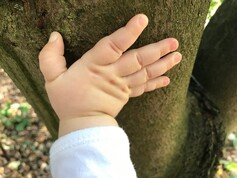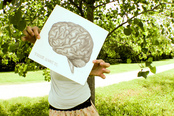 .Lets Imagine you walk up to three people in a park. They all have their right sock and shoe off and they are all rubbing their right foot. They are all wearing fitness and jogging wear. They all look focused and intent on what they are doing, paying little attention to what is going on around them. Without further information and just looking at behavior patterns you may come to conclusion that they are all in pain and that they may all have injured their foot. But, this may or may not be accurate. The way we currently diagnose autism spectrum disorders is similar. We reference observable behavior patterns, following criteria laid out for us on the DSM V and use measurable standardized instruments to gather information on these behavior patterns. As more and more people diagnosed with autism move into adulthood they are expressing many and varried thoughts and ideas regarding their experience having an ASD diagnosis, what it means to them, how or whether they felt valued, and whether they felt that the interventions that they were given were effective. What can be observed is that all of their experiences are different and that they truly experience their "autism" uniquely. It is also clear that at any one point in time, comparing two "similar" children diagnosed with ASD cannot in any way predict long-term outcome. Some children apparently "recover" by adulthood. Others remain "impaired" in many ways, but have found ways to express themselves through writing. Other individuals require life-long support. So, what does this say about diagnosis. One example to consider is in regards to Jenny McCarthy's son. Whether you are accepting of biomedical interventions or not, the reception of her son's "recovery" from autism in the broader community has been varied. Some, who have never actually met him, say that his symptoms more readily fit Landau-Kleffner Syndrome. Jenny, however, disagrees. The symptoms for Landau-Kleffner? Loss of verbal expression as a toddler, language comprehension struggles, and seizures. While this disorder is diagnosed with an EEG, observational criteria would have a child with this diagnosis potentially fit in the ASD diagnostic criteria. Outcomes for this population of kids is quite positive for strong language "recovery". Who is to say then that kids with Landau-Kleffner are NOT in fact autistic? If they fit the diagnostic criteria then in our current diagnostic process one does not rule out the other. Back to the observation of the people on the bench at the park. One person may have twisted her ankle after having stepped off the running path. She is feeling quite a bit of pain. Another had been sitting for awhile, checking e-mails when his foot fell asleep. He is feeling prickles as he works to get blood flowing to his toes again. The third had an injury a few months ago and her doctor wants her to massage her muscles before each run. If we looked at each person based on behavior me might assume they have the same "disorder". This is, however, far from the truth. Diagnosis based on observational behaviors is an aging construct. With MRI and genetic technology, as well as biological tests, such as the up and coming Clarifi saliva test we may find that there is quite a bit of variation in the ASD population when it comes to causality, cognitive profile, appropriate therapies, outcome, and self-perception of ASD individuals. Why is differential diagnosis important? Ultimately people's needs (in all populations) should be addressed on an individual basis based and on their individual profiles. It is my hope that the ASD diagnosis as we currently see it will disappear and in its place we will see the development of support systems and "treatment plans" based a more broad level of cognitive, psychological, and biological investigation that can truly support an individual and their family. And, in the long run help each person with autism be seen as an individual. This is really the only way to move toward a combined neurodiversity and interventionist model of support. Ultimately helping each person, as an individual be accepted as an individual while working to continue to grow and develop as that individual. Focus on the individual, not a diagnosis will lead to a better world for us all.
0 Comments
|
AuthorLisa works with families who are looking for educational solutions for their children. She has provided services to families in the DFW area for over 10 years. Archives
October 2019
Categories |

 RSS Feed
RSS Feed